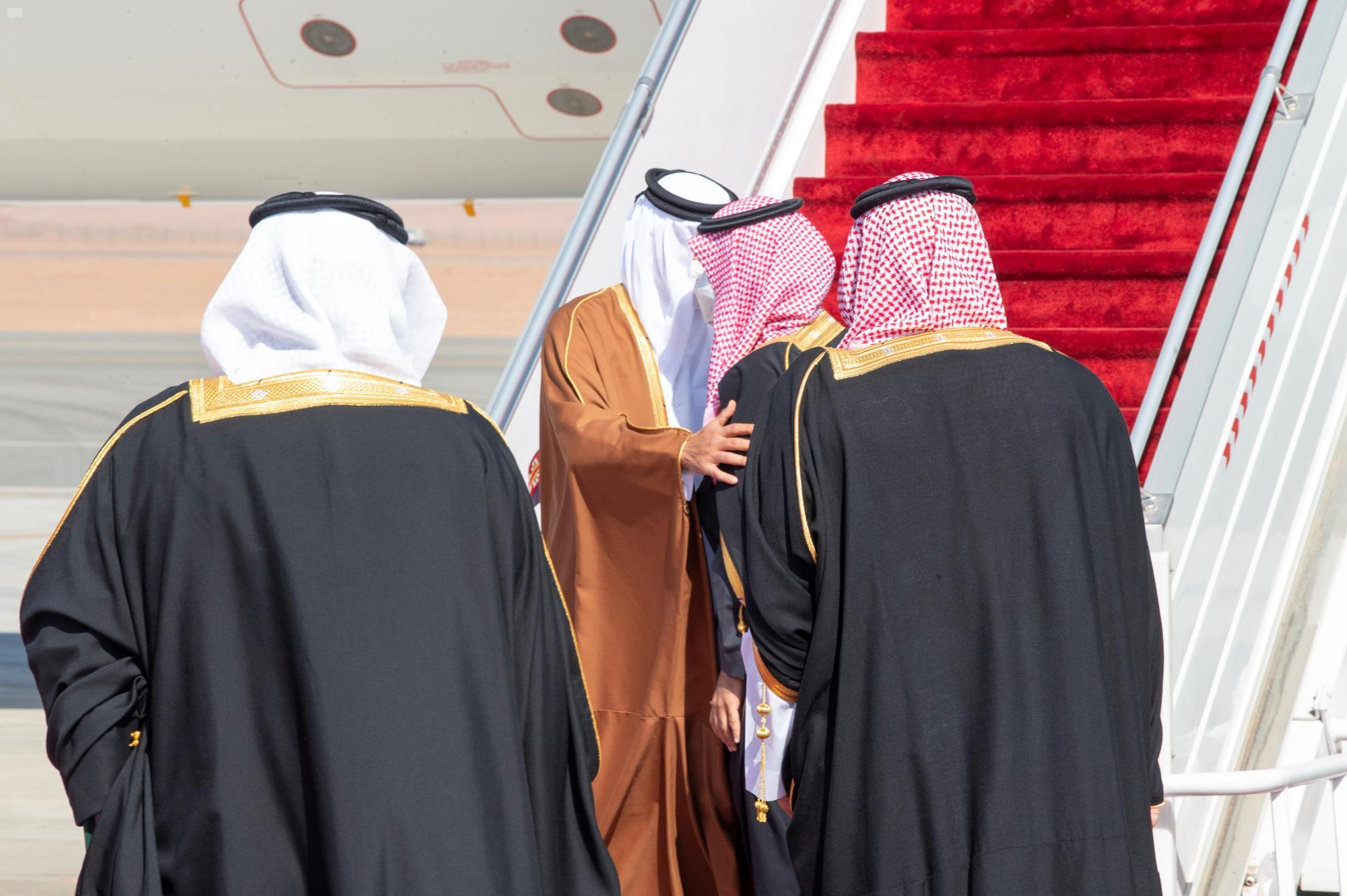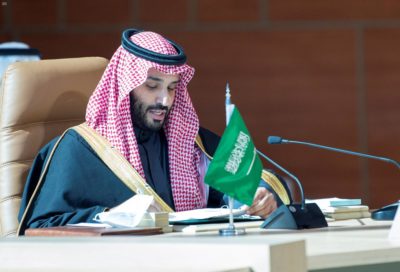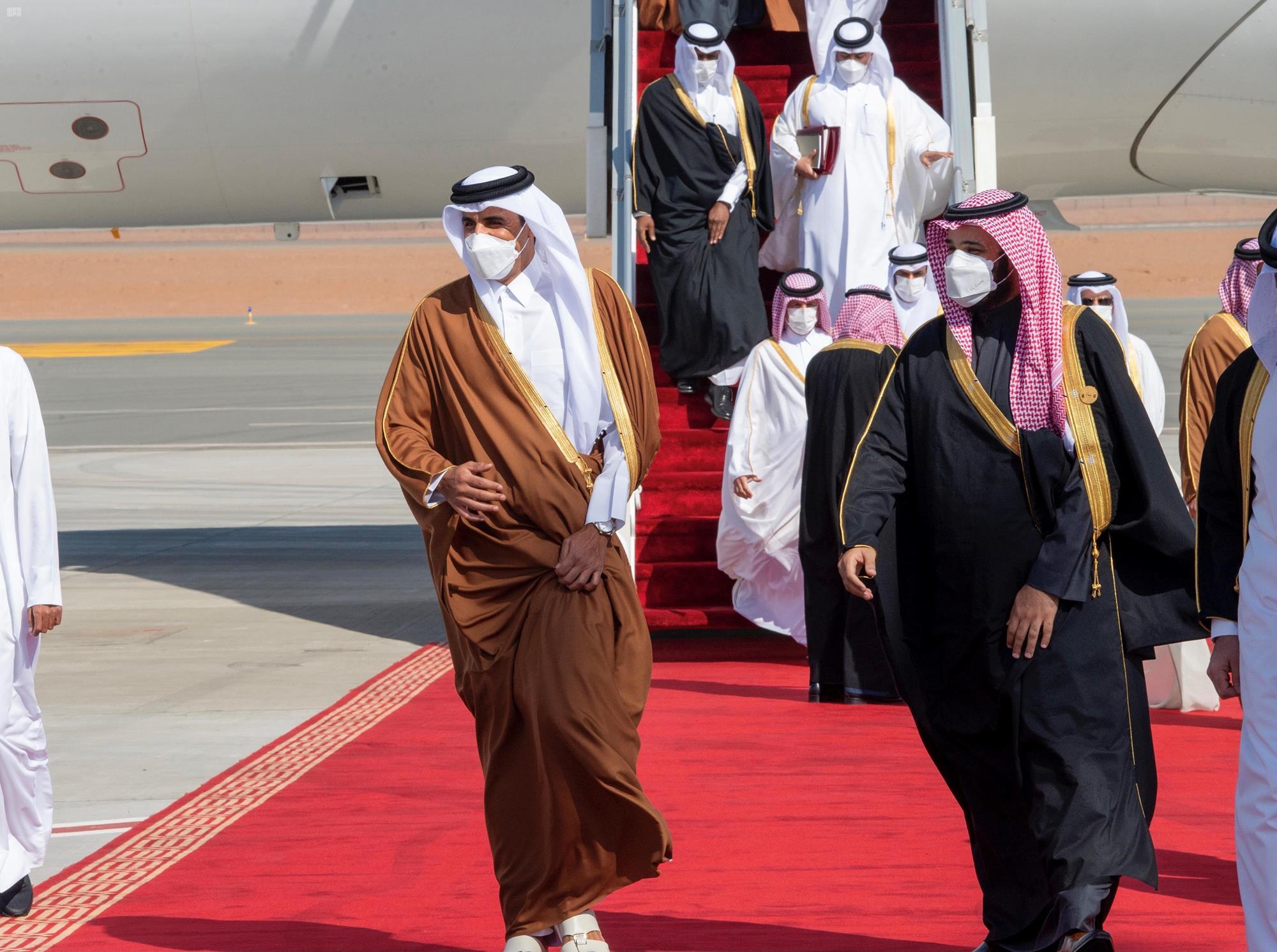Saudi Arabia and other GCC nations effectively ended their 42 month-long rift with neighboring Qatar on Monday, signaling a new era in Gulf political and economic relations and bringing to a close a long dispute begun in June 2017.
Saudi Arabia and Qatar have agreed to reopen their airspace and maritime borders starting Monday, according to an announcement by Kuwaiti officials, who claimed credit for brokering the deal by hosting a call between Saudi Arabia’s Crown Prince Mohammed bin Salman and Qatari Emir Sheikh Tamim bin Hamad Al Thani.

Saudi Arabia’s Crown Prince Mohammed bin Salman welcomes Qatar’s Emir Sheikh Tamim bin Hamad al-Thani upon his arrival to attend the Gulf Cooperation Council’s (GCC) 41st Summit in Al-Ula, Saudi Arabia.
Crown Prince Mohammed bin Salman personally welcomed Sheikh Tamim bin Hamad Al Thani upon his arrival in Saudi Arabia, photos show.
The deal was announced hours before Tuesday’s scheduled meeting of GCC states in Al Ula, Saudi Arabia. Representatives from Bahrain, Kuwait, Oman, Qatar, Saudi Arabia, and the United Arab Emirates (UAE) will attend the event. The Qatari Emir will also attend the summit, his first visit to the country in three years, according to CNN.

Crown Prince Mohammed bin Salman at Tuesday’s GCC meeting.
Saudi Arabia, Bahrain, Egypt, and the United Arab Emirates broke off relations with Qatar in 2017, accusing it of supporting terrorism and destabilizing the region, as well as using its media outlet, Al Jazeera, to undermine and meddle in the internal affairs of other nations.
The end of the dispute comes just 15 days before the start of the incoming administration of President-elect Joe Biden. “If it holds, an end to the blockade takes a diplomatic problem off the table for the incoming Biden team, which wants to turn its focus toward consolidating support for efforts to draw Iran back into the 2015 nuclear agreement and negotiate a follow-on agreement addressing Tehran’s ballistic-missile program and regional ambitions,” the Wall Street Journal reports.
The New York Times also reports that in Washington, the announcement was seen as good news. “Arriving during the transition from one American president to another, the deal sits at a rare overlap of interests for President Trump, whose administration has been urging its allies to stop quarreling and unify against Iran, and President-elect Joseph R. Biden Jr., whose team would prefer not to inherit a crisis centered on one of the globe’s most strategic regions,” the New York Times reports.
Jared Kushner, advisor to outgoing U.S. President Donald Trump, is also in Saudi Arabia to attend the meeting, and several outlets are reporting that he helped to mediate the dispute which began months into President Trump’s first and only term. In recent weeks, Saudi Arabia and Qatar have been under pressure from the now lame duck Trump administration to end the dispute.
At today’s summit, the leaders are going to sign an agreement that includes three confidence-building measures: Saudi Arabia, UAE and Bahrain will lift the air and sea blockade of Qatar; Qatar will withdraw all lawsuits against its three Gulf neighbors; and all parties will stop their media campaigns against each other, Axios reports.









